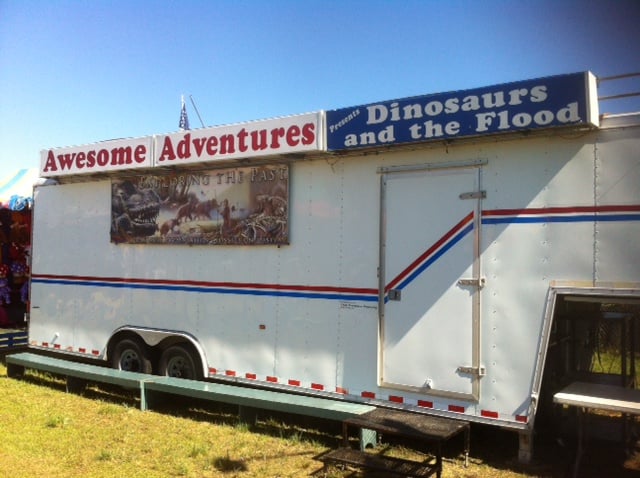You have /5 articles left.
Sign up for a free account or log in.
Coastal Louisiana is often seen as a different, vivid, kind of place, the last stop on the Mississippi Valley before saltwater ruins your Blahnik alligator pumps. There are many here who like the idea of being different. From the boat ramp of our peculiar little land’s end, all y’all, except the stilt-dwellers down in Cameron Parish, live up north.
Lake Charles, nearly in Texas, promotes an Acadian culture and “beautiful natural habitats, fresh water marshes, scenic rivers, inviting sunsets on the lakefront, [and] warm sandy beaches…coupled with smiling faces and warm hearts.” I’m not saying there aren’t inviting lakefront sunsets, they can be beautiful, but they sometimes compete with enormous fiery plumes that roar off the smokestacks of petrochemical plants across the water. Yesterday my sons asked, frightened, if the McMansion down the street from our house was on fire. Due to foreshortening, a plasma ball half the size of the McMansion appeared to be coming out of its roof. (Here’s a photo of people having fun at the lake in the early ‘70s, shortly after the EPA was created and immediately became interested in its mercury levels. Compare one taken at the same time with a recent photo next to it, by an AP photographer revisiting some of the the same EPA “Documerica” sites. One can see the improvement at a glance: Forty years later, people are no longer so dangerously thin.)
New Orleans of course works hard to promote itself as different. Even our local TV stations run commercials with the lieutenant governor hanging out in dress slacks in the French Quarter, explaining that “1 in 11” jobs in the state are created by tourism—cut to montage of laughing, handsome people eating beignets and listening to jazz—so we need to tell our friends and family to come on down for the food, music, and bonhomie.
Meanwhile, national media coverage of Louisiana brings you this and this and this and this and this and this and this.
I’ve said it before: For better or worse, the place has presence. MFA students moving down here from elsewhere feel it strongly. Some make valiant attempts to set stories in Louisiana, at which point it gets interesting, as workshop peers compare the words to what they feel they know by experience.
One part of the challenge is easily identified but hard to fix. You write something—a story, novel, travel book, poem, screenplay—about a place, but you’re not from there, so your choices in representing landscape, neighborhoods, what people do, how they talk or act or eat, come across as, variously, unfair, thin, unrealistic, unrepresentative, or cliché. On the far side of that, as we know, lie insensitivity, insult, and offense. I have a colleague who’s dismayed over the way villains in movies set in Louisiana always sneer and say, “Ma chère,” when no one he’s ever known has ever said such as thing.
As Sarah Lyall wrote recently in the New York Times:
The things we notice when we visit cities are rarely the things we notice when we live in them, and so it was for me when I moved to North London and then West London from New York many years ago. […] I had been to London only perhaps a half-dozen times before I moved, and so I had lived in visitors’ London: an intoxicating fairy tale of quirky architecture, treasure-filled museums, theater for every mood, exotic accents, stately parks, humorous food, royalty looming in the background and a subway system I could experience as amusing novelty rather than logistical necessity. Suddenly, all that went away, the days drew in, the autumn shadows fell, and London became instead about confronting the daily business of living: finding a decent grocery store and dealing with the impossibility of the gas company and learning to say rubbish bin instead of garbage can and having my shoes ruined by the rain.
So must we live somewhere long enough to get at what’s significant?
Paul Theroux, “Travel Writing: Why I Bother”:
A travel book has the capacity to express a country's heart—and perhaps the heart of a traveler too—but only as long as it stays away from vacations, holidays, sightseeing and the half-truths in official handouts; as long as it concentrates on people in their landscape, and it includes the discomforts as well as the pleasures, the dissonance as well as the melodies, the contradictions and the vivid trivia—the fungi on the wet boots.
He gets his fungus, so to speak, from Nabokov's novel Laughter in the Dark:
A writer for instance talks about India which I have seen, and gushes about dancing girls, tiger hunts, fakirs, betel nuts, serpents: the Glamour of the Mysterious East. But what does it amount to? Nothing. Instead of visualizing India I merely get a bad toothache from all these Eastern delights. Now, there's the other way, as for instance, the fellow who writes: "Before turning in I put out my wet boots to dry and in the morning I found that a thick blue forest had grown on them" ('Fungi, Madam,' he explained)... and at once India becomes alive for me. The rest is shop.
So must we settle on the prosaic? (Wet shoes appear to have currency.) The personal? Even the lyrical? Yet wasn’t it lyricism over first gator sightings and cypress logs submerged in slime that drew cries of foul to begin with? Who says a local, awareness dulled by familiarity, would necessarily use a different level of detail? (As the editor of a lit journal, I can confirm that’s not always the case.) Who gets to write what?

The entrance to the Extreme XXXX ride is marked by a sign that might be taken as racially motivated, showing a steroidaly-muscled, bare-chested man in gold jewelry angrily pointing a .45 pistol. There’s a win-a live-bunny game (ping pong balls), a win-an-iguana game (hoop toss), and many win-a-live goldfish games with dozens of the poor fish rolling over each other in filthy tanks. Are these details unfair? They’re certainly worse for the lieutenant governor than a gator’s eyes shining in a flashlight beam.
What about showing the kindness of the carnie who runs the rickety giant slide and lets children ride down on gunny sacks more than once for their two dollars, out of sympathy and a notion of what’s fair, even at the fair? What about the carnie at the balloon toss who, out of sympathy that the protagonist doesn’t have five dollars left to his name, asks how much he’s got and takes it all?
Should one speak instead of a plant nursery seen on the drive home, its young trees and hibiscus in big plastic pots shining wetly in neat rows under a hot October sun? An empty director’s chair, sitting in the shade of a satellite dish, in St. Augustine grass humped with fire ant mounds?
What words are adequate to Louisiana?
I’ve been thinking more about how a given detail of local life might work in three separate genres. An unofficial but strictly followed no-honk policy, for instance: Creative nonfiction might dissect the idea of politesse in southern society, find the outlets for rage when it’s constrained. A (bad) poem might end with the image of a granny’s careful little eyes over a steering wheel, her rear window filled with a pickup truck’s grill.
In fiction, place has to be integral to the drama—the granny, who smells of baby powder, drives a 1996 Buick Roadmaster, her dead husband’s car, which she resents for how it won’t take her commands; Mondays are the day she gets her hair done, but she’s more afraid every week as the town grows out of her recognition, all those empty lots covered with wood chips where the sea pines used to stand; close behind her, the guy in the pickup fumes; he’s in a difficult marriage suddenly made worse after the Axiall plant blew up; even people passing by in the smoke on I-10 got courted by lawyers and promised settlements, but he was laid off from his pipefitting job and his plans for his future delayed as he becomes more at the financial mercy of his wife, who loves him after all; wanting only to get somewhere but blocked by his past, by one of these old women like moving monuments, who are deferred to in all things….
For the next post or two, I thought I might pull some books off my shelf in the three genres and see what they make of place.





